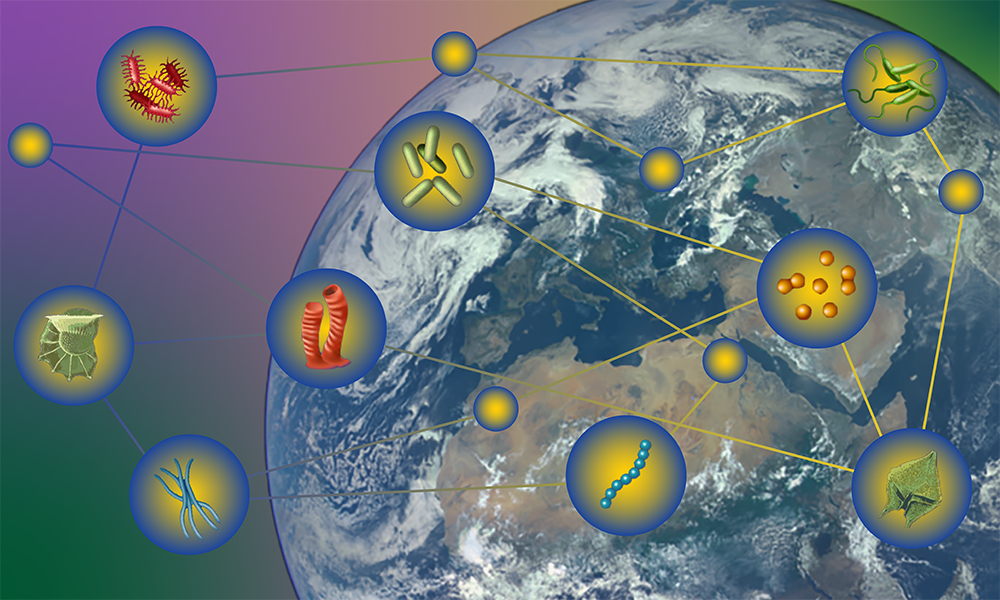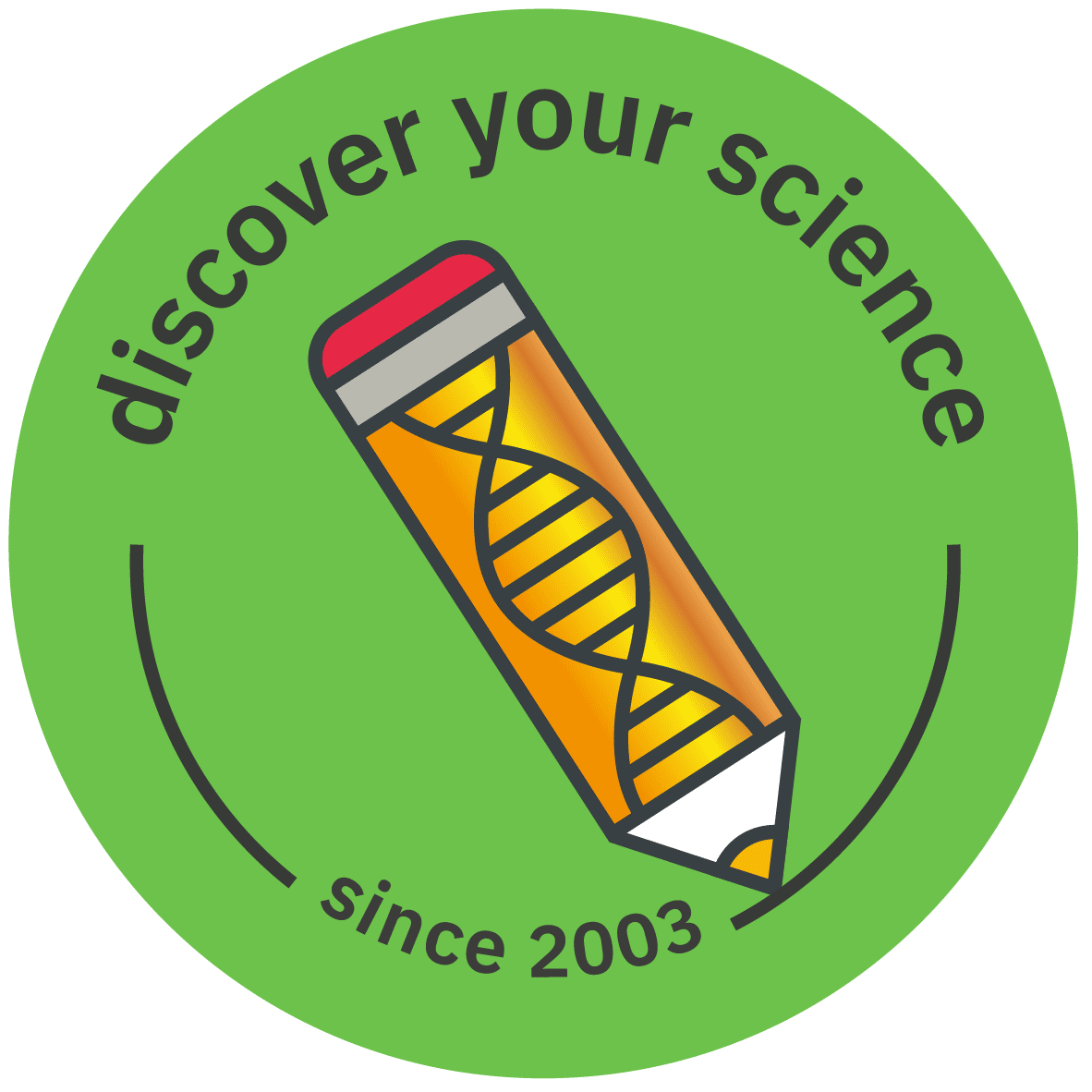Exploring ecosystems, April-May 2023
- Overview
- Organiser
- Learning formats & assignment
- Requirements, certificates and cancellations
- Application
Overview
Understanding life in its environmental context is crucial for finding solutions to maintain and improve our planet’s health. This spring, EMBL’s Science Education and Public Engagement (SEPE) team in partnership with Merck invites secondary school science teachers to explore this topic in a virtual training course entitled “Exploring ecosystems down to the molecular level: a scientific voyage”. The professional training course runs over two weeks, from 25 April to 7 May 2023. The course is free of charge, and the workload is estimated to be 9 hours and is designed to fit around a busy teacher’s schedule. The course’s working language is English.
Application deadline: 20 April 2023
This professional training course for secondary school science teachers provides insights into current scientific approaches to studying how living organisms respond and adapt to dynamic and complex ecosystems, from the molecular to the population level, and inspiration on how to teach topics related to ecology and the environment in the classroom.
The two-week course consists of a mix of individual learning and interactive live sessions. The workload across the course is estimated to be 9 hours, covering 4-5 hours each week. An extra week for assignment submission is granted.
In week 1, participants will explore how scientists are trying to reach a new and comprehensive understanding of ecosystems and their responses to changing environments. Participants will be introduced to an unparalleled scientific endeavour, the TRaversing European Coastlines (TREC) expedition, which sets out to study the interaction between coastal and inland ecosystems and their organisms using, among others, molecular biology approaches. Join EMBL scientists in discussing strategies for obtaining a mechanistic understanding of organismal responses to natural and anthropogenic factors, and how this can help address important challenges such as climate change, pollution, the spread of antibiotic resistance, and loss of biodiversity.
Week 2 will provide insights and inspiration for teaching topics related to ecology in class. Participants will explore a selection of educational materials for secondary school students, including a brand-new game-based resource developed by EMBL’s Science Education and Public Engagement team.
The educational game puts students into the shoes of scientists who survey different island habitats and discover the organismal communities living there. Faced with a sudden change in the local environment, students identify anthropogenic impacts made on the ecosystem. The resource links to the following concepts in the secondary school biology curriculum: adaptation, interdependence and competition of living organisms; organisation of ecosystems; biodiversity and the effects of human interaction with ecosystems.
By the end of the course, participants will:
- deepen and expand their understanding of studying life in its environmental context using molecular biology
- appreciate the potential of current approaches for studying ecosystems down to the molecular level on finding solutions to maintain and improve our planet’s health
- become familiar with a brand new game-based educational resource which can be directly applied in the classroom
Moreover, the course gives participants the opportunity to
- connect to active researchers in the field
- expand their sources of materials for teaching topics related to living organisms and their ecosystems in secondary school
- expand their network of international teachers and science educators
Organiser
This training course is organised by EMBL’s Science Education and Public Engagement office in collaboration with Merck.
Science Education and Public Engagement
EMBL’s Science Education and Public Engagement office shares the scientific discoveries of EMBL with young people, teachers and the diverse public in Europe and beyond. Our education programmes convey complex, cutting-edge topics in life science research in an exciting and insightful way, fostering the discovery of current research trends, the scientific method, and scientific career paths. Our teacher training courses empower educators to bring modern life sciences into the classroom. Visit our website for further information about our activities.

Merck, a leading science and technology company, operates across life science, healthcare and electronics. More than 64,000 employees work to make a positive difference to millions of people’s lives every day by creating more joyful and sustainable ways to live. From providing products and services that accelerate drug development and manufacturing as well as discovering unique ways to treat the most challenging diseases to enabling the intelligence of devices – the company is everywhere. In 2022, Merck generated sales of € 22.2 billion in 66 countries.
Learning formats & assignment
The course will take place online and will be taught through e-lectures, live Q&A sessions, reading material and online exercises.
The course is mainly designed to be self-paced. However, the course features several live sessions where attendees meet researchers, course organisers and other participants. Recordings of some of the live sessions will be made available to all participants after the session for the course duration. The workload for completing the compulsory learning content is between 4-5 hours per week. The content each week comprises compulsory and additional content that is optional. To be eligible for a certificate of attendance, participants must have submitted the required compulsory assignments by the Sunday of the week following the course (14 May 2023).
Requirements, certificates and cancellations
Requirements
Please note that we recommend a minimum English language level of B2 according to the Common European Framework of Reference for Languages to complete the course successfully. Please consult this self-assessment chart if you are unsure about your language skills.
The course will take place on a Moodle-based e-learning platform (eCampus) and the Zoom meeting tool. To access the course, participants should have access to a computer with an internet connection. To take part in the interactive live sessions on Zoom, participants should have an audio connection as well as a camera.
Certification
Participants receive a certificate of attendance upon completion of the course. To be eligible for the certificate, participants must have submitted the required compulsory assignments by Sunday of the week following the course.
Cancellation
As we anticipate the virtual LearningLAB to be very popular, we ask participants to only apply if they are certain that they can attend the course. In case you find yourself unable to attend after having received our confirmation email, please notify us as soon as possible by email but no later than 7 days before the start of the course.
Application
Terms and conditions
Please make yourself familiar with the terms and conditions for participating in our courses and on data protection. Your agreement to these terms and conditions is required before you can continue applying for the course.
Application
Please ensure that you have read all course information on this page before applying and are confident that you can attend if your application is successful. You will need to submit a short motivational statement (min. 100 words) in the application form. To apply, please fill in the following application form.

Date: 25 April - 7 May 2023
Application deadline: 20 Apr 2023
Topic area: Environmental biology
Format: Virtual
Location: Online
Fee: Free
Contact: emblog-ells@embl.org
Organiser: SEPE team
Share:
